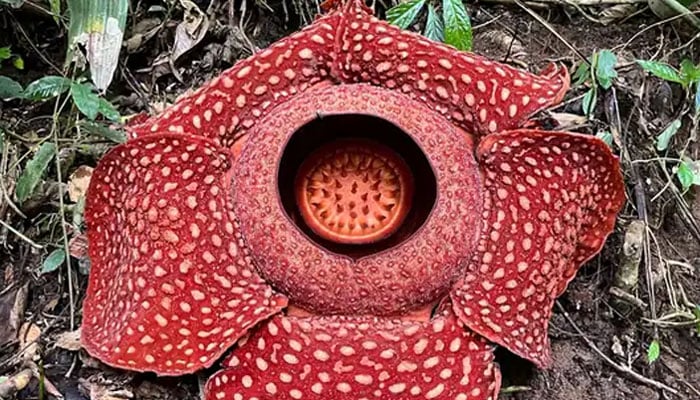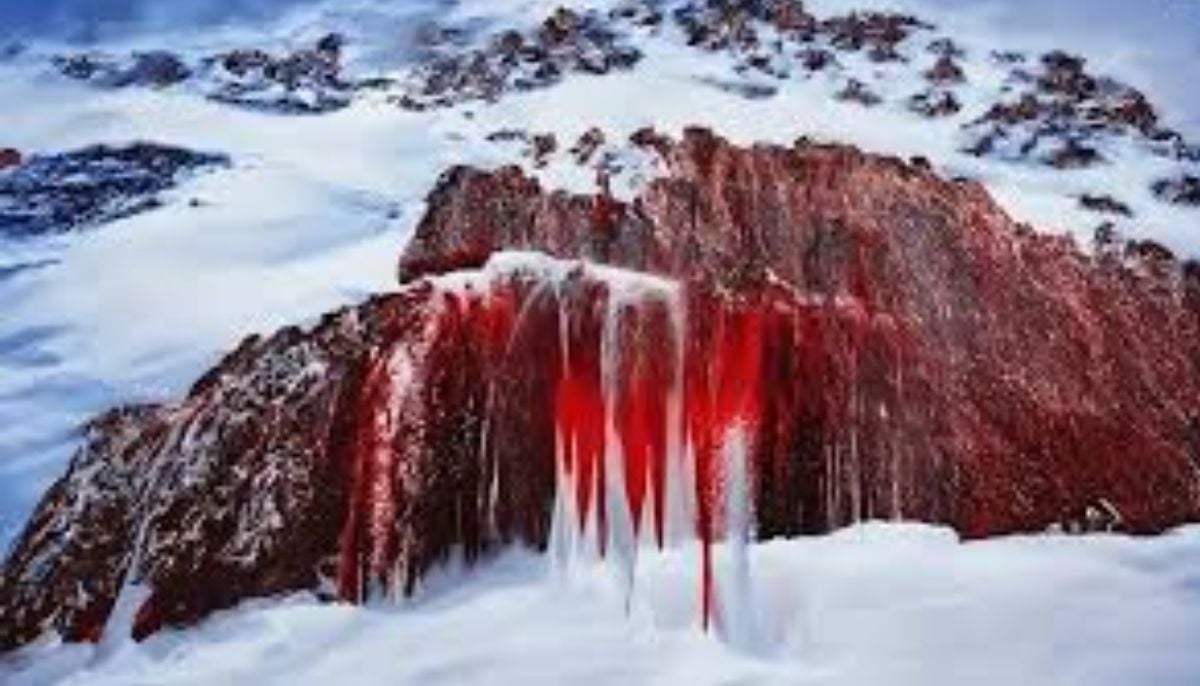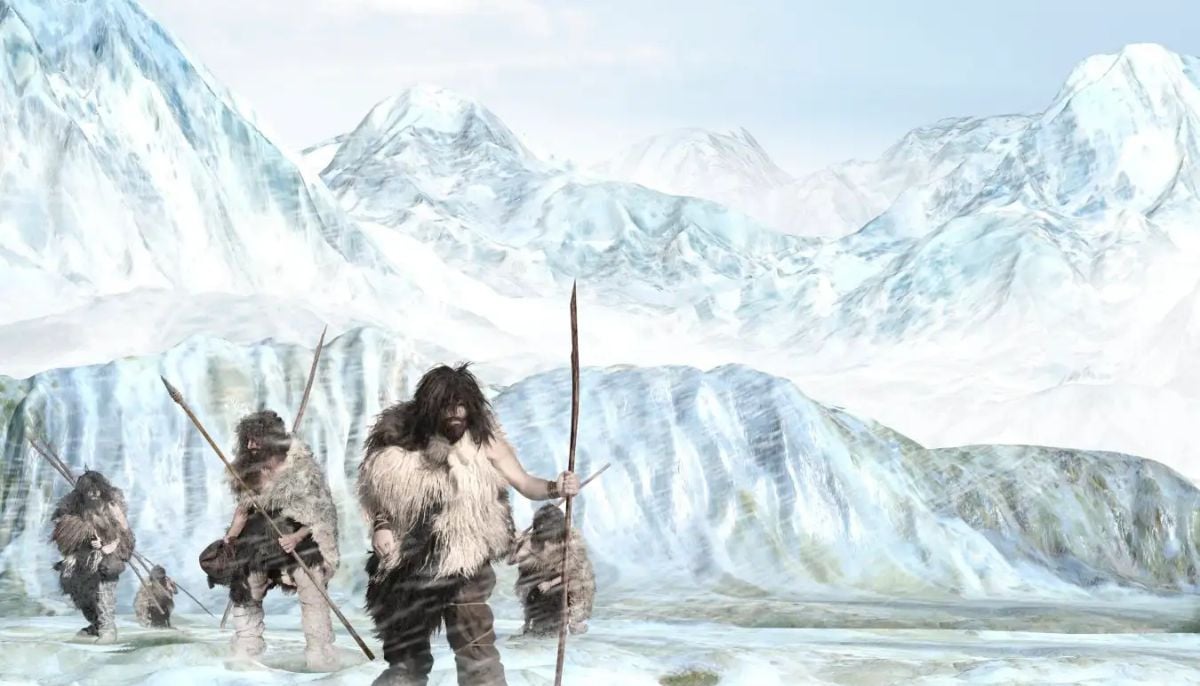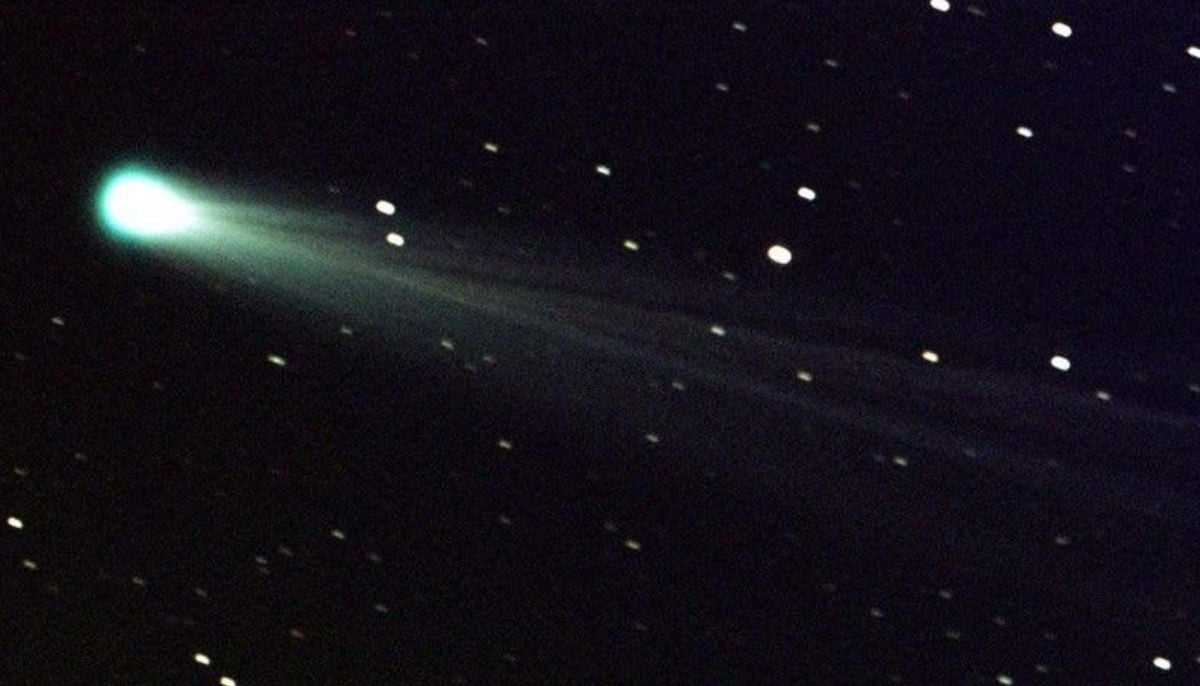Most species of world's largest flower Rafflesia at risk of extinction
Rafflesia is actually a parasite which lives on tropical vines across parts of Southeast Asia
The majority of species of the famously huge Rafflesia flower, which has long captivated people's attention with its massive speckled red petals, are now in danger of going extinct, as per new research published on Wednesday.
Rafflesia is actually a parasite, and lives on tropical vines across parts of Southeast Asia, producing blooms that are among the largest in the world.
It is something of an enigma, with its flowers emerging unpredictably, and botanists have had limited success propagating it outside its natural environment.
One species of the flower is currently classed as "critically endangered", according to the International Union for Conservation of Nature.
To better understand the plant and its conservation status, an international group of botanists examined 42 known Rafflesia species and their habitats -- primarily Brunei, Indonesia, Malaysia, the Philippines and Thailand, AFP reported.
Based on the rapid disappearance of its forest habitats, as well as insufficient conservation strategies and protection plans, the plant is at far greater risk than previously known, they said.
"We estimate that 60 per cent of Rafflesia species face a severe risk of extinction," the researchers wrote in the study, published Wednesday in the peer-reviewed Plants, People, Planet journal.
Some species risk going extinct before they are even known to science, the study said, urging more research into the unusual plant.
"We urgently need a joined-up, cross-regional approach to save some of the world's most remarkable flowers, most of which are now on the brink of being lost," said Chris Thorogood, deputy director of Oxford University´s Botanical Garden and a study author.
The research points out that the plant is believed to grow in fairly limited areas, making it particularly vulnerable to habitat destruction.
It also highlights several bright spots in conservation efforts, including successful propagation at a botanical garden in Indonesia´s West Java, and sustainable ecotourism around the plant in West Sumatra.
Last year, nations pledged to protect 30% of the world´s land and seas by 2030 in a landmark deal to slow the disappearance of species and ecosystems.
Repeated studies have warned that the twin threats of climate change and environmental destruction caused by humans are dramatically reducing biodiversity worldwide.
-
Climate change vs Nature: Is world near a potential ecological tipping point?
-
125-million-year-old dinosaur with never-before-seen spikes stuns scientists in China
-
Scientists stunned as shark appears for first time in Antarctic Southern Ocean waters
-
New study suggests universe can end in ‘Big Crunch’ in 20bn years
-
Hidden Venus: New data discovers massive underground Lava Tube
-
‘Earth is defenseless against city-killer asteroids’: NASA issues stark warning
-
Annular solar eclipse 2026: Where and when to see the ‘Ring of fire’
-
Bright green comet C/2024 E1 nears closest approach before leaving solar system












